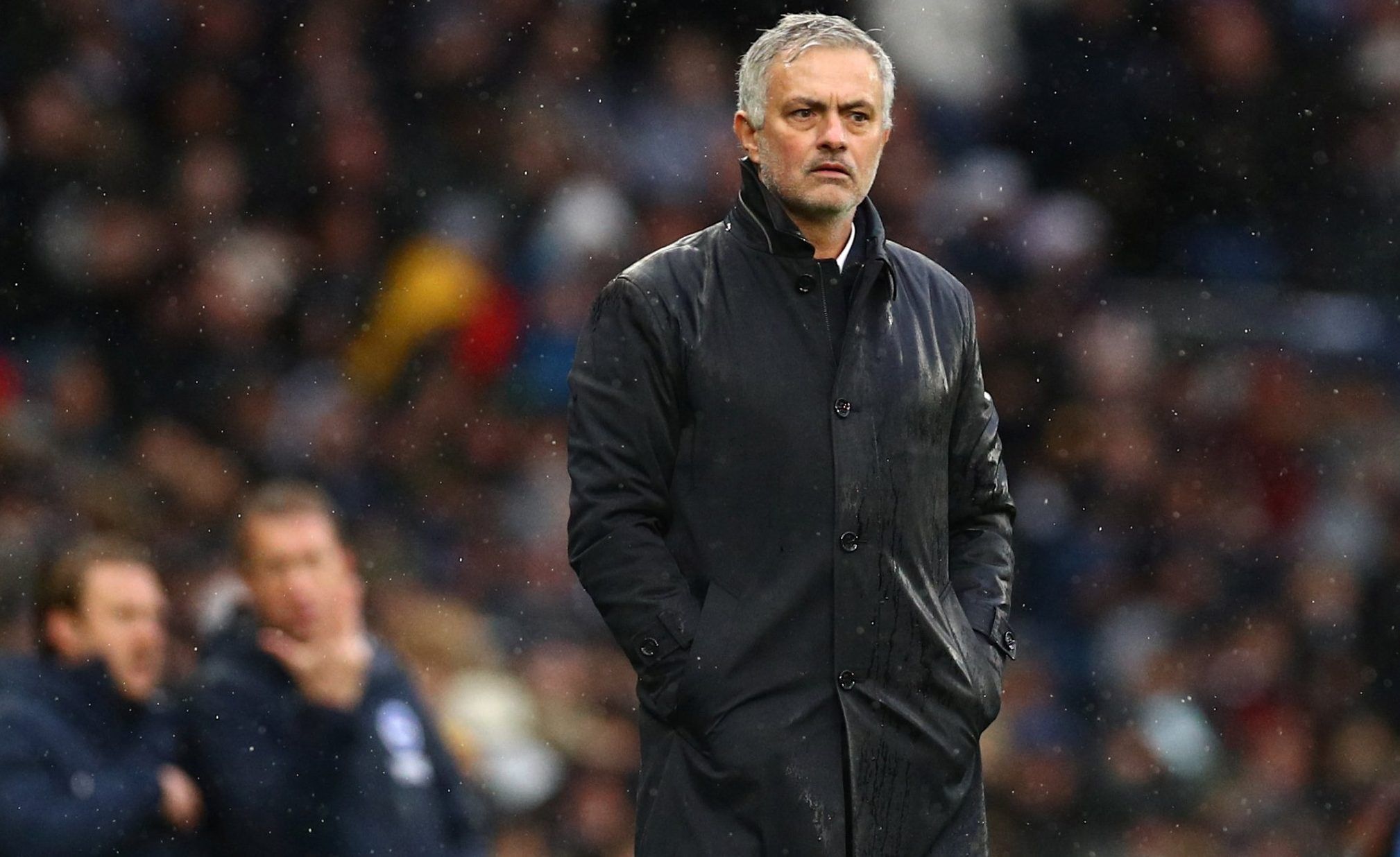Jose Mourinho has been roundly questioned for his tactical plan against Liverpool.
A piece by Jonathan Liew in The Guardian, for example, claimed that the Portuguese was “cagey and closed” in the first-half, that he had a “basic poverty of ambition”. Miguel Delaney, of The Independent, wrote that it was “small-team football”.
This is based on a first-half in which, per that Guardian report, Spurs had 27% possession.
And yet, really, what was he supposed to do?
Of course, one has to make the point that it is the job of journalists to wring up to 1,000 words out of 90 minutes, a narrative has to take hold, a point must be made.
And yet it feels like the wrong point to be firing shells at Mourinho.
Spurs have been in poor form; they headed into the game against Liverpool on a run of three games without a win. They were playing a team that hadn’t lost in 11, without their star striker in Harry Kane and without a key member of their midfield, Moussa Sissoko. Hugo Lloris is also injured, while the lack of depth required Mourinho to play Japhet Tanganga in central defence.
What Mourinho tried to do in the first-half was limit Liverpool and attempt to soak up their pressure before breaking with serious pace. They conceded, though, as Roberto Firmino’s world-class touch took him away from Tanganga and allowed him to finish past Paulo Gazzaniga.
It was the game in a microcosm; Liverpool could call on their elite players in the final third, Spurs couldn’t.
In the second half, Mourinho threw caution to the wind, perhaps knowing that a 2-0 defeat would not be all that more damaging than a 1-0 defeat and Spurs had chances. Son Heung-Min skied an effort from close-range, Giovani Lo Celso missed a sitter.
Money talks: How much did Levy pay for each of these Spurs stars?
This isn’t proof that the first-half approach was wrong, quite the opposite. Instead, it showed that, had Spurs reached half-time at 0-0, with Liverpool in the ascendency, they could have changed approach and, perhaps, caught the Reds cold.
Jurgen Klopp’s men, actually, were ready for the siege, because of their goal and the fact that Spurs had no other option but to go for it.
It is a constant criticism of teams going against Liverpool and Manchester City that they sit off too much, that they park the bus and show a “poverty of ambition”.
And yet the results show that it is, really, the only way to go about it. Leicester City tried to go toe-to-toe with the Reds, perhaps emboldened by a run that had taken them to second in the Premier League. They lost 4-0.
Had Mourinho done that, overseen a chastening defeat, he would not have been praised by Liew and Delaney for his gung-ho approach that led to humiliation; he will have been told that he was naïve, that he was perhaps too arrogant to think that his weakened Spurs side could go punch-for-punch with the best team in England.
Mourinho knows this, of course. But the fact is that the second half was perhaps the most encouraging 45 minutes of his reign in north London thus far.
That should be the focus; sniffing at his approach is, quite simply, nonsense.
Meanwhile, Spurs fans have gone in on one man.

